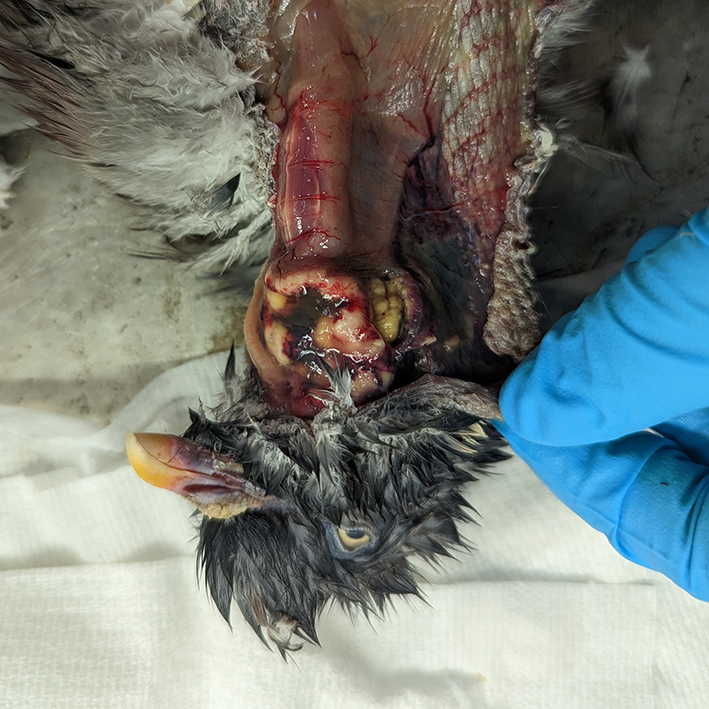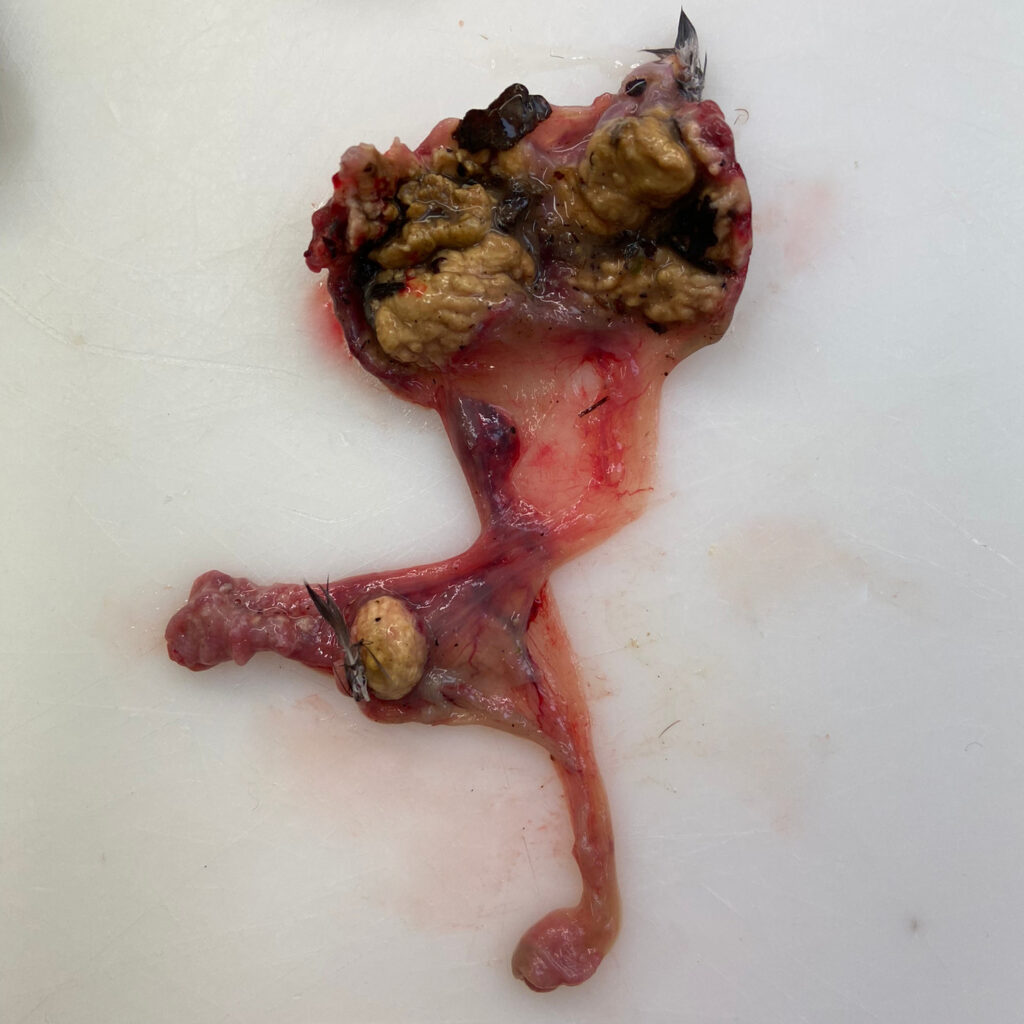

This winter, the DWHC has received more reports on dead pigeons. These reports came from different parts of the country. Most reports concern wood pigeons, but collared doves and stock pigeons were also reported.
In eight pigeons (one stock pigeon, one collared dove and six wood pigeons) that were examined by the DWHC in december and january, inflammations in the beak and throat were found, caused by “Pigeon Canker”. These pigeons could not eat or swallow due to this inflammation, and consequently died. This disease is seen throughout the year, but mortality frequently peaks in winter, as was reported in 2017 and 2018.
 |  |
| Wood pigeon with Trichomonas infection | Close up of a caseous yellow sludge |
“Pigeon Canker” is caused by the parasite Trichomonas gallinae and also known as trichomonosis and trichomoniasis. The parasite is transmitted by direct contact or via contaminated food or water. Pigeons, finches, raptors and carrion eaters are susceptible. In the clip below, footage of Trichomonas parasites under a microscope are seen.
Birds ill with “Pigeon Canker” are lethargic, have puffed up feathers, and are too weak to fly. Inflammations in the oral cavity, throat, crop and oesophagus make drinking and eating difficult and often food cannot be swallowed properly or is regurgitated and falls out of the beak. The birds die of starvation or suffocation, sometimes swiftly. Similar symptoms are also found in cases of avian pox, and as such, examination is required to uncover what disease the bird suffered from.
When feeding birds in your garden, it is important to take certain hygienic measures to prevent the transmission of diseases between birds in a feeding place.
For older articles of the DWHC and more information on “Pigeon canker”, go to: https://dwhc.nl/en/ziekten/trichomonas/